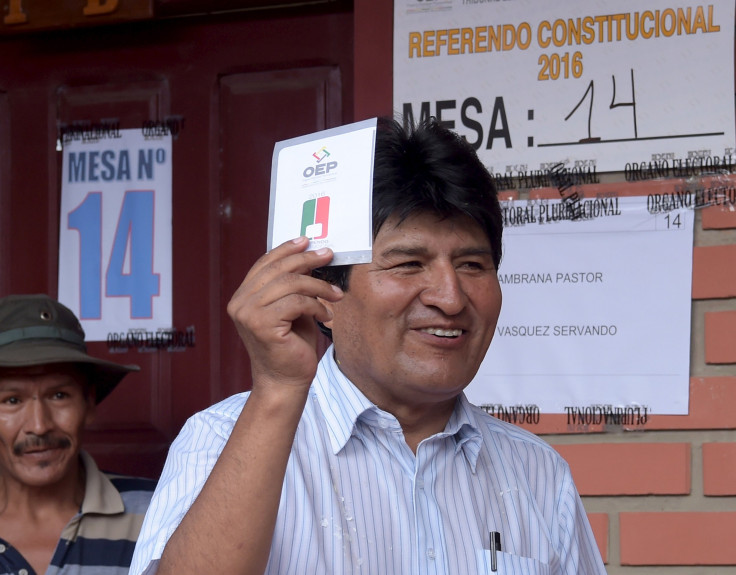In Bolivia, Voters Decide Whether To Give Leftist President Evo Morales A Fourth Term In Office

Bolivians headed to the polls Sunday to decide whether to amend the nation’s rules on term limits and pave the way for President Evo Morales to run for re-election in 2019.
Morales, a self-described socialist generally popular among Bolivia’s poor and working classes, is widely regarded as the first indigenous president in the country’s history.
Critics have decried the referendum as a sign of creeping authoritarianism — if it passes, Morales, who was first elected in 2005, could remain in power until 2025. His supporters say the move is necessary to cement the progress overseen by his administration.
During Morales’ tenure, Bolivia adopted a new constitution that extended rights to the country’s indigenous majorities and nationalized the oil and gas industries. Morales backers also point to the government’s success in combating poverty while experiencing one of the highest economic growth rates in South America, around 5.4 percent in 2014, according to the International Monetary Fund.
But Morales and his administration faces mounting allegations of corruption. Most recently, critics have accused the government of steering contracts worth more than $500 million to a firm where a former lover of Morales worked. Opponents also say the Morales government has intimidated the media and undermined the independence of the central bank and judiciary.

Morales became president during Latin America’s so-called pink tide when left-wing parties and leaders came to power on the promise of reversing neoliberal economic policies. Parties in two of those countries, Venezuela and Argentina, recently suffered stinging defeats at the ballot box.
Election monitors from the Union of South American Nations said polls opened without incident. But at a polling station in the city of Santa Cruz, a bastion of anti-government sentiment, angry voters set fire to ballots and ballot boxes after they learned there were no election registries.
Voting is mandatory and 6.5 million people are eligible to cast ballots.
Bolivia’s national election authority said results would be available 48 hours after the vote. The results are expected to be close.
© Copyright IBTimes 2025. All rights reserved.






















